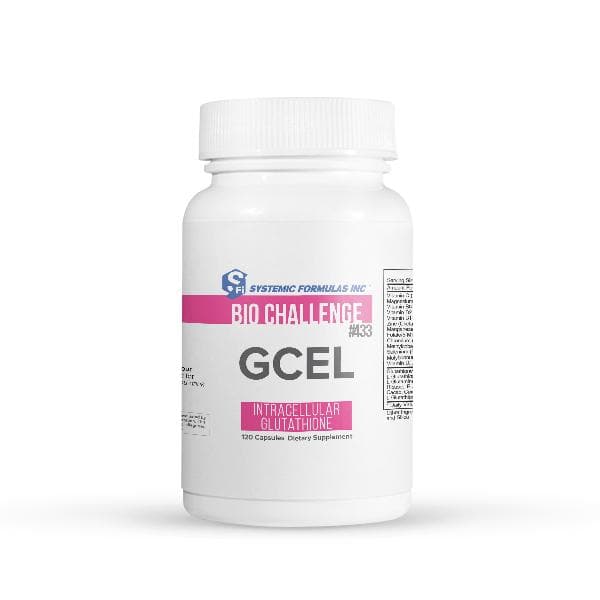The Top 5 Nutrients for a Healthy Immune System

Share
The immune system is the first line of defense against illness and disease. This article will list the top nutrients that keep the immune system healthy, foods that contain these nutrients, and the best all-natural supplements on the market today.
#1 Zinc (Zn)
Zinc is vital for the immune system, wound repair, and metabolism function. It improves the body’s natural killer cell’s ability to destroy viruses and other dangerous pathogens. It also improves the skin’s ability to be an initial barrier that prevents pathogens from entering the body.
The effect of zinc on the immune system has been extensively studied:
- A zinc deficiency has been linked to several chronic diseases, including diabetes, liver disease, kidney disease, sickle cell disease, gastrointestinal diseases, and HIV infection. [1]
- Zinc is effective against the common cold: Zinc consumed within 4 hours of the onset of symptoms reduces the duration of common cold symptoms in healthy people.[2]
- Studies indicate zinc is effective against respiratory infections, reducing the duration of pneumonia symptoms, decreasing the effect of RSV on the lungs, and helping to prevent ventilator-induced lung damage.[3]
Several factors can cause a zinc deficiency:
- Inadequate consumption through diet. Individuals who follow strict vegetarian diets are at an increased risk of zinc deficiency.
- Inability to absorb the nutrient. Crohn’s disease, short bowel syndrome, and pancreatic insufficiency can lead to a zinc deficiency.
- Increased metabolic demand. Pregnancy and lactation can cause zinc requirements to increase up to two months postpartum.
- Medications. Certain antibiotics, diuretics, and penicillamine (a medication used to treat rheumatoid arthritis) could inhibit zinc absorption.
Large amounts of Zinc can’t be stored in the body. As a result, zinc must be consumed regularly. According to the World Health Organization, the risk of zinc deficiency is a worldwide public health concern.
Top zinc food sources:
- Oysters
- Beef
- Chicken
- Cashews
- Wild rice
- Tofu
- Hemp seeds
- Shiitake mushrooms
#2. Vitamin D
Vitamin D plays a primary role in increasing the absorption of magnesium, calcium, and phosphate. Also known as the “sunshine vitamin,” between 50% and 90% of vitamin D is absorbed through the skin via sunlight, with the rest coming from diet.
Vitamin D plays a pivotal role in maintaining good health:
- A report from the Mayo Clinic notes a vitamin D deficiency might put people at higher risk of respiratory illnesses.
- Cancer, cardiovascular disease, depression, diabetes, and cancer have been linked to vitamin D deficiency.[4]
- A vitamin D deficiency is believed to increase the susceptibility to infections and increase autoimmunity.[5]
A vitamin D deficiency can be prevented with only 20 minutes of direct sunshine over 40% of exposed skin. Unfortunately, over 1 billion people worldwide are still believed to have a vitamin D deficiency.[4]
In addition to simply not getting enough sun, there are other potential causes for a vitamin D deficiency:
- Decreased absorption. Cystic fibrosis, IBD, celiac disease, gastric bypass, and chronic pancreatic insufficiency can increase the risk of a vitamin D deficiency.
- Medications. Dexamethasone, nifedipine, spironolactone, phenobarbital, carbamazepine, and rifampin could trigger the degradation of vitamin D in the body.[4]
- Liver disease. Chronic liver diseases such as cirrhosis can lead to vitamin D deficiency.
Top Food Sources of Vitamin D:
- Beef liver
- Cod liver oil
- Fatty fish (halibut, swordfish, herring, tuna)
- Eggs
#3. Vitamin C
Also known as ascorbic acid, vitamin C is a powerful antioxidant that supports the immune system by promoting the antioxidant scavenging activity of the skin. It also has been used to treat respiratory and systemic infections.
Studies on vitamin C note the following:
- Vitamin C is key in preventing “common and complex diseases” such as stroke, cancer, and coronary heart disease.[6]
- Consuming 50-100 mg of Vitamin C daily was associated with reduced risk of all-cause mortality, gastric cancer, cervical cancer, lung cancer, and cardiovascular disease.[7]
Top sources of vitamin C:
- Cantaloupe
- Peas
- Papaya
- Kiwi
- Broccoli
- Peppers (red bell, chili)
- Dark green leafy veggies
- Strawberry
#4. Beta carotene
Beta carotene is a plant pigment converted to vitamin A in the body. It is typically found in green, yellow, and orange leafy vegetables.
- Studies indicate diets high in beta-carotene have a reduced incidence of cancer. Beta carotene is high in antioxidants, which many researchers believe gives them anti-cancer properties and enhanced immune cell function.[8]
- Beta carotene stimulates the immune system by increasing the activity of natural killer cells, lymphocytes, and interleukins.[9] Each works together to fight foreign viruses, bacteria, and cancer cells in the body.
Top sources of beta carotene:
- Spinach
- Carrots
- Mango
- Apricot
- Cantaloupe
- Sweet potatoes
- Collard greens
#5. Protein
Proteins comprise amino acids attached to each other in long chains. Protein and amino acids are used for much more than building muscle: they assist with losing weight and digesting food.
- Regarding immune function, studies indicate a protein deficiency can negatively impact the T-cell system, increasing the risk of infection and morbidity and mortality in hospitalized patients.[10]
- In another study, the protein was key in 3 key immune system functions:
- Activation of natural killer cells, macrophages, and lymphocytes
- Gene expression
- Production of antibodies and cytokines.
Researchers also note supplementing specific amino acids for those suffering from malnutrition and infectious diseases enhanced the immune status, which reduced morbidity and mortality.[11]
Top Protein Sources:
- Meat (beef, bison, lamb, turkey, chicken)
- Fish (salmon, sardines, mackerel, squid, tuna)
- Broccoli
- Chia seeds
- Sprouts
- Maca
- Kale
- Brazil nuts
Honorable Mentions
In addition to the foods listed above, here are a few popular snacks that are great for the immune system:
- Air-popped popcorn. Popcorn is a low-calorie snack that is high in whole grains and fiber. It is also packed with nutrients: magnesium, iron, potassium, zinc, B vitamins, manganese, and others. Air-popped popcorn has a glycemic index of 55, which is considered low. Avoid high-calorie toppings and add olive oil, a dash of salt, or spices.
- Dark chocolate. Dark chocolate contains antioxidants (flavonoids), iron, magnesium, zinc, protein, and other nutrients. Add almonds, strawberries, or bananas to boost your immune system. Dark chocolate has a glycemic index of 23 and is classified as a low-GI food. Limit consumption to only 2-3 ounces daily due to its high-calorie content.
Note: Milk chocolate contains higher amounts of sugar than dark chocolate. It also has less cocoa and nutrients.
- Green tea. Green tea is excellent for the immune system because it helps protect the body from oxidants and free radicals. Green tea ranks among the highest of all teas in antioxidant content.
- Apple cider vinegar. Up to 80% of the immune system is estimated to reside in the gut and gut microbiota. An excess of bad bacteria in the gut has been linked to many chronic health issues, including type 2 diabetes, intestinal bowel diseases, obesity, and several types of cancer. ACV helps to support gut health by encouraging healthy gut bacteria growth while simultaneously killing bad bacteria.[12]
Worst Foods For the Immune System
It’s important to be aware of foods that harm the immune system. The foods below are among the worst for immune health:
- Alcohol
- Sugar-sweetened drinks
- Fried foods
- Processed meats
- High sodium foods
Limiting the consumption of these foods is strongly advised.
Top Immune Support Supplements
In addition to getting the nutrients described above, supplements are also available. The following all-natural supplements are considered among the best for the immune system.
ZNC 195 - ZINC CHELATE 
ZNC 195 provides the body with a natural form of zinc in liquid form, which makes it readily assimilated into the body. In addition to keeping the immune system healthy, zinc is vital for developing the reproductive organs, digestive enzyme health, and hormone production. Just two teaspoons daily provide the body with the zinc it needs.
#129 - DV3 - Vitamin D3 Plus Immune Support 
In addition to vitamin D,DV3 is a unique formula that contains magnesium, turmeric, vitamin E, beta-glucan, and calcium. DV3 also helps reduce inflammation and supports the liver and kidneys.
GCEL 433 - Intracellular Glutathione
Glutathione is widely regarded as one of the most powerful antioxidants. This “master antioxidant” is found in every cell in the human body and is responsible for keeping them healthy and functioning properly. Many chronic, age-related diseases, such as cancer and neurodegeneration, have been linked to low glutathione levels.[13]
GCEL increasesglutathione levels in thebody and provides the following benefits: 
- Fights free-radical damage
- Keeps cells healthy and active
- Prevents autointoxication
GCEL also contains vitamin C, B vitamins (B1, B2, B5, B6,) magnesium, turmeric, zinc, selenium, vitamin D and other key nutrients.
PerfectAmino® Power Meal
PerfectAmino® Power Meal is a complete meal replacement ranked among the highest quality protein sources. This all-natural product is great for athletes or those seeking better shape.
Other benefits of PerfectAmino® Power Meal include the following: 
- Low glycemic index
- Only 180 calories
- Contains MCT oil, which provides long-lasting energy
- Has key vitamins and minerals for optimal health
This product also comes in a delicious vanilla flavor.
Summary
Keeping the immune system strong is key to good health. While no one can guarantee you’ll never get sick, a properly functioning immune system might lessen the severity of the illness. Try to eat a variety of healthy foods daily. Your body will thank you.
References:
- Luke Maxfield; Samarth Shukla; Jonathan S. Crane.Zinc Deficiency – StatPearls. Treasure Island (FL): StatPearls Publishing; 2023 Jan. https://www.ncbi.nlm.nih.gov/books/NBK493231/
- Harri Hemilä, Elizabeth Chalker. Zinc for the common cold. Cochrane Database Syst Rev PMC6483791. [PMCID: PMC6483791].https://pubmed.ncbi.nlm.nih.gov/23775705/
- Fatemeh Sadeghsoltani 1, Iraj Mohammadzadeh 2, Mir-Meghdad Safari, (et al). Zinc and Respiratory Viral Infections: Important Trace Element in Anti-viral Response and Immune Regulation. Biol Trace Elem Res. 2022 Jun;200(6):2556-2571. doi: 10.1007/s12011-021-02859-z. Epub 2021 Aug 9. [PMID: 34368933]. https://pubmed.ncbi.nlm.nih.gov/34368933/
- Omeed Sizar; Swapnil Khare; Amandeep Goyal;, (et al). Vitamin D Deficiency – StatPearls. Treasure Island (FL): StatPearls Publishing; 2023 Jan-. https://www.ncbi.nlm.nih.gov/books/NBK532266/
- Cynthia Aranow. Vitamin D and the immune system. J Investig Med. 2011 Aug;59(6):881-6. doi: 10.2310/JIM.0b013e31821b8755. [PMID: 21527855].https://pubmed.ncbi.nlm.nih.gov/21527855/
- Matthew Granger 1, Peter Eck. Dietary Vitamin C in Human Health. Adv Food Nutr Res. 2018;83:281-310. doi: 10.1016/bs.afnr.2017.11.006. Epub 2018 Feb 16. [PMID: 29477224].https://pubmed.ncbi.nlm.nih.gov/29477224/
- Kedi Xu 1 2 3, Rui Peng 4, Yuanlin Zou, (et al). Vitamin C intake and multiple health outcomes: an umbrella review of systematic reviews and meta-analyses. Int J Food Sci Nutr. 2022 Aug;73(5):588-599. doi: 10.1080/09637486.2022.2048359. Epub 2022 Mar 15.[ PMID: 35291895].https://pubmed.ncbi.nlm.nih.gov/35291895/
- D A Hughes. Effects of carotenoids on human immune function. Proc Nutr Soc. 1999 Aug;58(3):713-8. doi: 10.1017/s0029665199000932. [PMID: 10604207].https://pubmed.ncbi.nlm.nih.gov/10604207/
- Raksha Anand, Lalit Mohan, Navneeta Bharadvaja. Disease Prevention and Treatment Using β-Carotene: the Ultimate Provitamin A. Springer Nature - PMC COVID-19 Collection PMC9150880. [PMID: 35669276].https://www.ncbi.nlm.nih.gov/pmc/articles/PMC9150880/
- J M Daly 1, J Reynolds, R K Sigal, (et al). Effect of dietary protein and amino acids on immune function. Crit Care Med. 1990 Feb;18(2 Suppl):S86-93. [PMID: 2105184].https://pubmed.ncbi.nlm.nih.gov/2105184/
- Peng Li 1, Yu-Long Yin, Defa Li, Sung Woo Kim, (et al). Amino acids and immune function Br J Nutr. 2007 Aug;98(2):237-52. doi: 10.1017/S000711450769936X. Epub 2007 Apr 3. [PMID: 17403271]. https://pubmed.ncbi.nlm.nih.gov/17403271/
- Willem M de Vos # 1 2, Herbert Tilg # 3, Matthias Van Hul, (et al). Gut microbiome and health: mechanistic insights. Gut. 2022 May;71(5):1020-1032. doi: 10.1136/gutjnl-2021-326789. Epub 2022 Feb 1. [PMID: 35105664]. https://pubmed.ncbi.nlm.nih.gov/35105664/
- Deanna M. Minich1, Benjamin I. Brown. A Review of Dietary (Phyto)Nutrients for Glutathione Support. Nutrients. 2019 Sep; 11(9): 2073. Published online 2019 Sep 3. doi: 10.3390/nu11092073. [PMID: 31484368]. https://www.ncbi.nlm.nih.gov/pmc/articles/PMC6770193/
